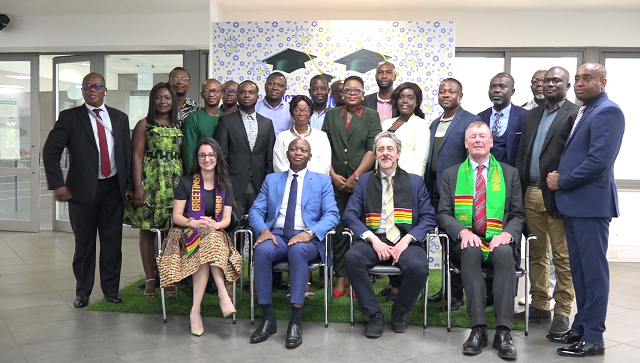The Ghana Ports and Harbours Authority has invested in 15 staff to undertake the fifth cycle of the United Nations Conference on Trade and Development (UNCTAD) Train for Trade Program in line with its quest to empower staff with requisite skills to succeed in the fiercely competitive and ever-evolving world of international trade.
The Authority says it will continually invest in the UNCTAD Train for Trade Program to prepare future management staff to understand emerging challenges in the industry and how to find sustainable solutions to them.
The GPHA staff who partook in the training program were the first within the English speaking network to graduate the fifth cycle of the program.
The UNCTAD Chief in charge of the Human Resources Development Branch Division on Technology and Logistics, Mark Assaf, urged the graduates to return to their places of work with a renewed mind-set that takes into cognisance the radical changes on-going in the industry and apply themselves to help their organisation excel amid these changes.
“Remember that you are in the industry that is a national strategic asset for local trade and for the region because you provide support for neighbouring countries,” he remarked.
Director General of the Authority, Michael Luguje, expressed that the Authority is always happy to associate with the UNCTAD program due to the enormous benefits it has presented over the years.
“Since we began working with UNCTAD not just Ghana Ports and Harbours Authority but across all other ports in our sub-region, Africa and our widely developed world, we have come to appreciate the rich content and the practical nature of the UNCTAD Train for Trade Program where you are not just learning theory but seeing it in actual practice,” he said.
The Learning and Development Manager at GPHA, Solomon Sackitey, revealed that GPHA’s strides with the UNCTAD program has earned the admiration of other countries who intend to emulate at their ports.
The various students acknowledged how the various modules have brought them closer to understanding contemporary challenges within the sector and how to effectively overcome them in their fields of work.
